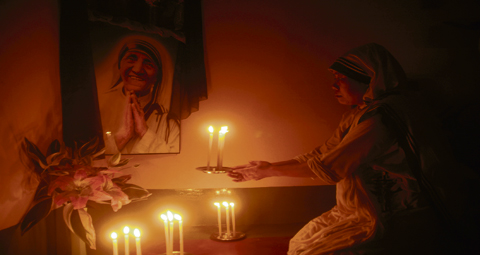March 21 | ![]() 0 COMMENTS
0 COMMENTS ![]() print
print

What dark nights do for us
Fr Ronald Rolheiser
After Mother Teresa died, her diaries revealed something that shocked many people, namely, during the last 60 years of her life, from age 27 until she died at age 87, she struggled to imagine that God existed and had no affective experience of either the person or the existence of God. Yet, during all those years, everything in her life incarnated and radiated an exceptional, one-in-a-hundred-million, selflessness, altruism, and faith commitment.
On the surface this might seem incongruous, even contradictory; but those two things, her feeling that God was absent and her exceptional selflessness, are not unconnected. The opposite. The latter depends precisely upon the former; her inability to feel God affectively, the dryness of her faith experience, the dark night that enveloped her, were precisely the reason her faith was so pure and her actions were so selfless. In short, with all affective feelings gone and with her imagination helpless to create images of God and a concept of God’s existence, she was no longer able to manipulate her experience of God and reshape it to fit her own needs. She had to receive God on God’s own terms, not on her terms. The very dryness of her faith was what made it so pure. The seeming absence of God also helped assure the absence of her own ego.
To more fully appreciate what is being said here it can be helpful to contrast Mother Teresa, both in the barrenness of her experience of faith and the effect this had on her life, with countless popular religious figures, past and present, who, sadly, too frequently radiate the exact opposite. They boost of a robust, affective faith, declaring again and again how real God is in their lives and how deeply they sense the presence of Jesus. And indeed there is no reason to doubt their sincerity and honesty; a genuine fervour does flow out of them. But, unlike Mother Teresa, both their preaching and their own lives often exhibit far too much ego, narcissism, projection, and manipulation of God and religion for their own benefit. Without being cruel, it is fair to say that we, and indeed the whole world, never much confuse many of our popular religious preachers and writers with Mother Teresa. We see in their religious fervour far too much of themselves and how their religious experience benefit them. The irony is that they, so many popular religious preachers and writers, boast of a much stronger faith than did Mother Teresa, but their experience of God translates far less altruistically into their lives.
Ludwig Feuerbach and Friedrich Nietzsche have written perhaps the most penetrating critique that has yet been written on religion and religious experience. Their theory is that all religious experience is ultimately human projection, that we create God in our own image and likeness, and that we then use that image of God for our own benefit. For them, all religious experience is ultimately self-created for our own benefit. In their view, inside of all religious experience there is always an element of manipulation, rationalization, and dishonesty, although the person having the experience is blind to that fact. He or she is convinced that God is somehow dictating what is happening inside his or her soul, when in fact it is mostly self-interest that is dictating what is happening inside the soul, and that is why we so commonly see that distressing discrepancy between the religious fervour inside so many of us and the self-interest that is ultimately served by that religiosity.
What’s to be said about this? My guess is that Nietzsche and Feuerbach are 95 per cent correct. However they are 5 per cent wrong and that 5 per cent makes all the difference. The evidence suggests that 95 per cent of the time we do manipulate our experience of God to serve our own interests. However God arranges things so that we cannot do this all the time. God corrects our proclivity to create a God who works for our self-interest by sending us, as he did to Mother Teresa, crushing dark nights of the soul, namely, periods of imaginative and affective dryness within which we simply are unable to imagine and affectively feel either God’s existence or God’s love for us. While we continue to somehow ‘know’ God at a deeper level, our imaginations and our emotions run out of gas, completely. And when this happens, we find ourselves powerless to manipulate our experience of God in any way—and certainly not to work it for our own benefit. God can then flow into us purely, with our egos, narcissism, and selfishness now unable to colour the experience.
Leonard Cohen coined this now-famous line: There is a crack in everything, but that’s how the light gets in! Since we cannot resist habitually manipulating our faith and religious experience to make it work for our own benefit, God eventually puts a stop to it. As he did with Mother Teresa, God sends us crushing dark nights that purify us, in spite of ourselves.











